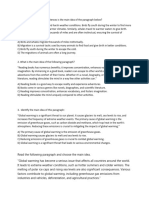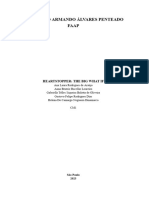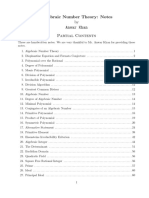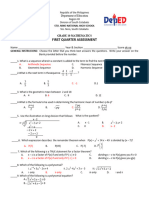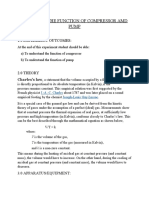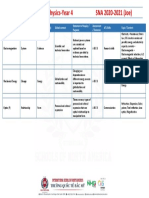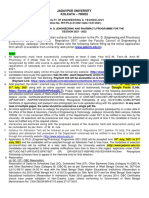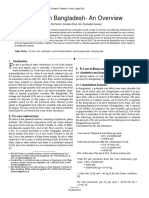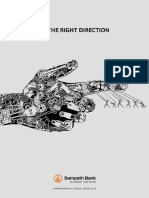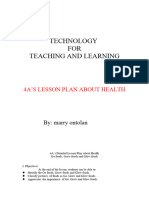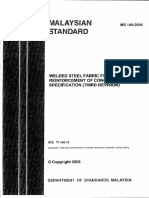0% found this document useful (0 votes)
14 views7 pagesFull Reading Test
The document consists of passages discussing the importance of hard work and adaptability for success, how animals adapt to survive in changing environments, the impact of technology on modern jobs, and the challenges posed by climate change. Each passage is followed by a set of questions aimed at assessing reading comprehension. The overall theme emphasizes the necessity of adaptation in various contexts, whether in personal success, wildlife survival, employment, or environmental issues.
Uploaded by
hthyk9Copyright
© © All Rights Reserved
We take content rights seriously. If you suspect this is your content, claim it here.
Available Formats
Download as PDF, TXT or read online on Scribd
0% found this document useful (0 votes)
14 views7 pagesFull Reading Test
The document consists of passages discussing the importance of hard work and adaptability for success, how animals adapt to survive in changing environments, the impact of technology on modern jobs, and the challenges posed by climate change. Each passage is followed by a set of questions aimed at assessing reading comprehension. The overall theme emphasizes the necessity of adaptation in various contexts, whether in personal success, wildlife survival, employment, or environmental issues.
Uploaded by
hthyk9Copyright
© © All Rights Reserved
We take content rights seriously. If you suspect this is your content, claim it here.
Available Formats
Download as PDF, TXT or read online on Scribd
/ 7

























